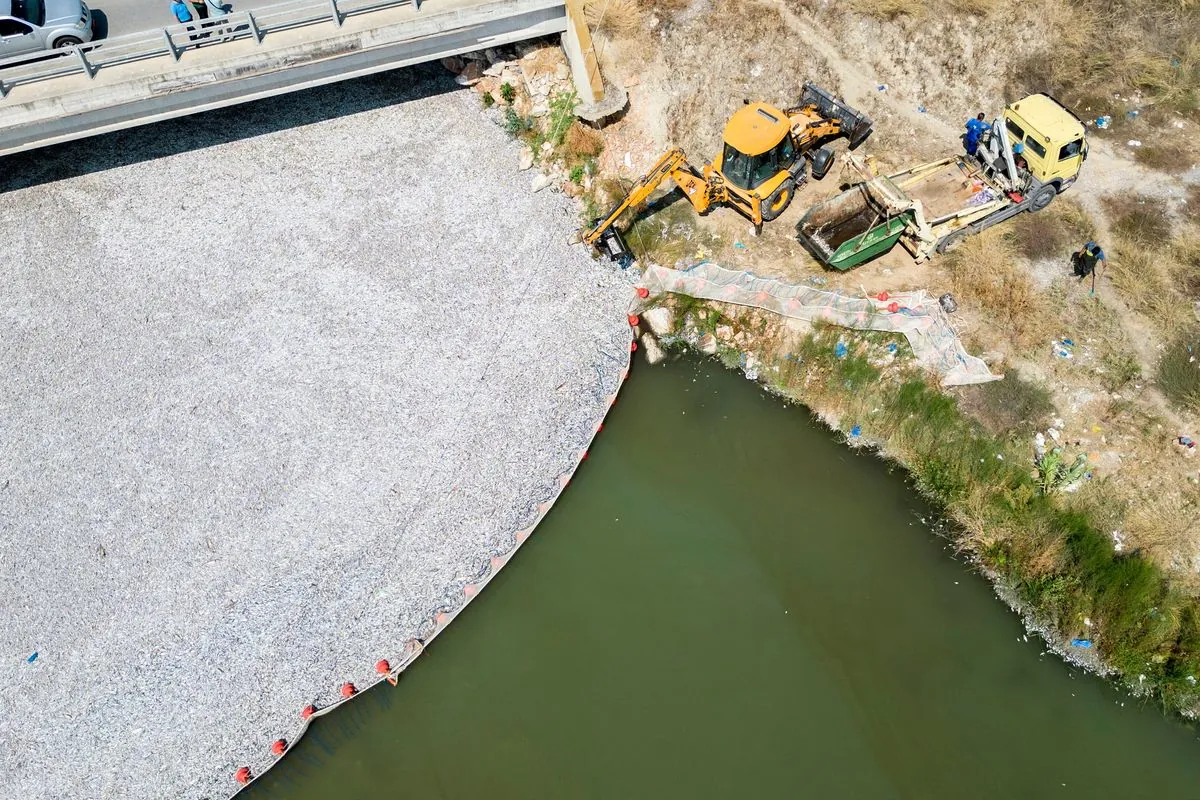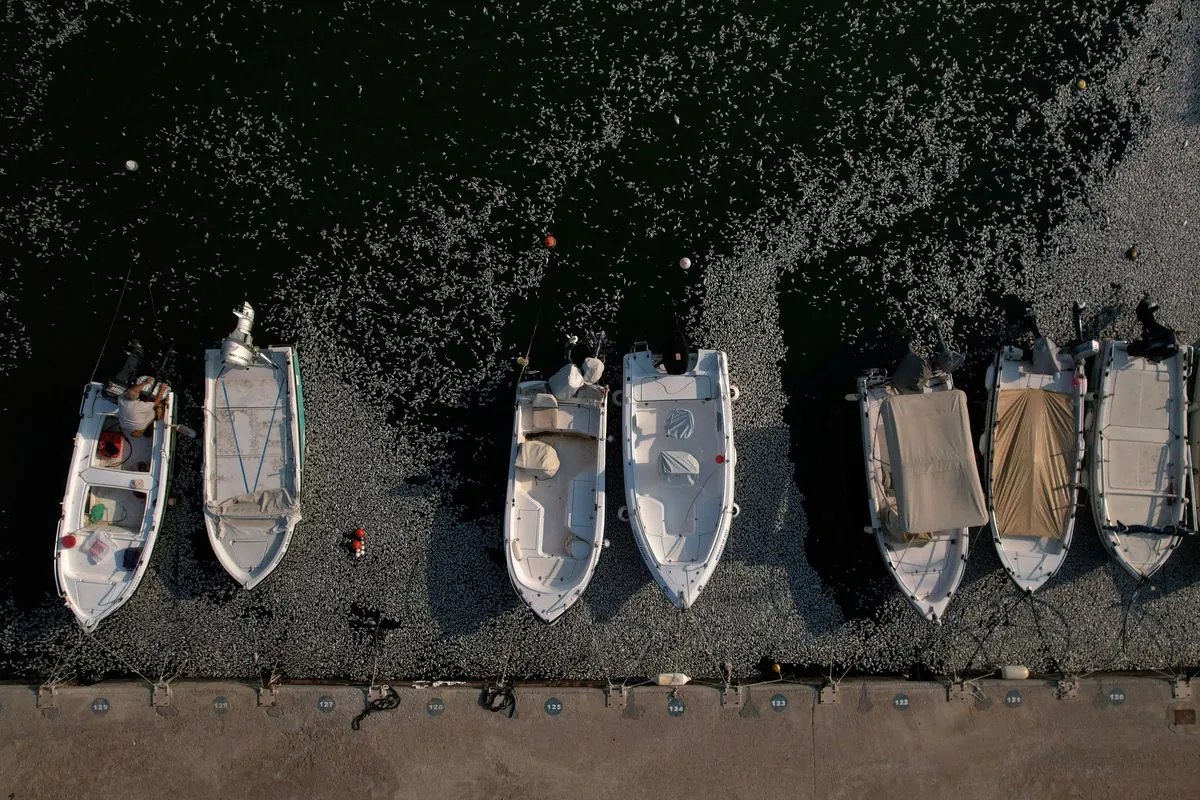Mass Fish Die-Off Plagues Greek Tourist Port of Volos
Volos, Greece faces an environmental crisis as hundreds of thousands of dead fish flood its port, a consequence of last year's flooding. Local authorities scramble to clean up as tourism suffers.

In a startling environmental incident, the Greek coastal city of Volos is grappling with an unprecedented influx of dead fish in its tourist port. This crisis, unfolding in August 2024, stems from the aftermath of severe flooding that occurred in the previous year.
The scale of the problem is immense, with hundreds of thousands of fish carcasses creating a silvery blanket across the port and extending into the Pagasetic Gulf. Local authorities have mobilized to address the issue, collecting over 40 tonnes of dead fish within a 24-hour period. Trawlers are being employed to drag nets through the water, gathering the fish for disposal in trucks.

The root cause of this ecological disaster can be traced back to the historic floods that inundated the Thessalian Plain in 2023. These floods displaced freshwater fish from their habitats, eventually leading them to the saltwater environment of the port. The sudden change in salinity proved fatal for these freshwater species, resulting in the mass die-off witnessed today.
Achilleas Beos, the mayor of Volos, has expressed strong criticism towards the government's handling of the situation. He argues that preventive measures, such as placing a protective net at the river mouth leading into Volos, were not implemented. This oversight has now led to what he describes as a potential "environmental disaster" for other marine species in the area.
"They didn't do the obvious, to put a protective net."
The incident highlights the broader implications of climate change on Greece's coastal regions. As one of the 13 administrative regions of Greece, Thessaly is experiencing firsthand the consequences of more frequent and intense extreme weather events. The Mediterranean Sea, of which the Pagasetic Gulf is a part, is becoming increasingly vulnerable to these climate change effects.
The economic impact of this environmental crisis is significant, particularly for the tourism sector. Greece's economy heavily relies on tourism, which accounts for approximately 20% of its GDP. Local businesses in the Volos area are already feeling the pinch. Dimosthenis Bakoyiannis, a 33-year-old beach restaurant owner, reported an 80% drop in turnover this summer due to decreased tourist visits following the flooding.
This incident serves as a stark reminder of the delicate balance between human activities, natural ecosystems, and climate change. As Greece continues to implement measures to combat climate change impacts, the situation in Volos underscores the urgent need for proactive environmental management and disaster preparedness.
Local environmental prosecutors have initiated an investigation into the matter, reflecting the seriousness with which Greek authorities are treating potential ecological damage. As cleanup efforts continue, the long-term effects on the marine ecosystem of the Pagasetic Gulf remain to be seen.


































